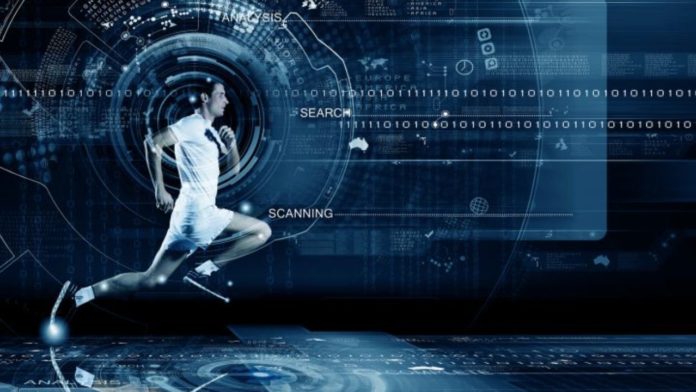Today, modern technologies play a fundamental role along the entire sports life cycle, from the recruitment and training of athletes to the analysis of their performance, from audience experience to media and management.
Every aspect of sports, intended both as a competitive and playful activity and as part of the show business, is embraced by AI, as described by PwC:
The AI technologies in sports now
According to the same PwC research, AI-based tools are already being deployed in virtually all major sports disciplines, such as American football, soccer, baseball, and cricket, but also non-professional leisure activities like grassroots sports.
Among these tools, we can count sensors, wearables, and computer vision-powered cameras to collect athletes’ performance data. At the same time, natural language processing devices can leverage speech and text recognition to gather insights regarding the audience’s sentiment.
How much money are we talking about?
Considering the holistic role of AI in sports, it should come as no surprise that the technology market linked to this sector was already worth $8.9 billion in 2018, and may reach $31.1 billion by 2024 with a compound annual growth rate of 20.63%, according to MarketsAndMarkets’ report Sports Technology Market—Global Forecast to 2024.
Among the potential reasons for this sharp development, the researchers identified an increasing level of public involvement, the expanding demand for decision making but also a plain and simple growth in the number of sporting events. These factors lead sports companies to invest increasing sums in AI implementation, data analytics, and machine learning consulting.
AI before and during the game
After this general roundup, it’s time to take a closer look at some use cases where sports can benefit from AI. Let’s start with the fields of application that are most related to the competitive and playful nature of sports: recruiting, coaching, healthcare, and virtual assistant referees.
Recruiting
Artificial intelligence can influence an athlete’s career right from the start. Specifically, it can process historical data on players’ performance to predict their potential and market value before a sports club decides to invest in thThis is the case of the NBA Global Scout app, a platform that uses artificial intelligence to analyze videos uploaded by users and evaluate their performance while performing specific exercises.
This can also be an advantage for players because the adoption of tools based on artificial intelligence greatly reduces any bias during recruitment, and helps to find hidden talent even in countries where a specific sport is not particularly practiced.
Coachingem
Performance analysis and forecast modeling may have an even greater impact when it comes to developing training programs for athletes and playing tactics. Thanks to the aid of wearable sensors and AI-powered cameras, it’s possible to collect a multitude of data (passes, goals scored, rebounds, movement speeds, ball trajectories, shot accuracy, etc.).
This information will be processed by ML-based systems to ensure useful insights for coaches. At the same time, machine learning can also be used to identify opponents’ playing patterns and grasp their strengths and weaknesses.
Healthcare
The analytical and predictive capabilities of AI also find application in medical diagnostics.
Health is a fundamental factor in determining the performance and well-being of athletes. AI-powered systems can screen many physical parameters, including players’ movements, to assess their condition and even spot any injuries or health problems before the athlete himself or herself realizes it.
Collecting information through various sensors is essential for data analytics in healthcare, but according to the most recent trends, the absolute protagonists are health wearables thanks to their portability and increasingly low costs.
Virtual assistant referees
AI may soon deprive sports fans of their greatest passion, namely complaining about referee decisions. Virtual assistant referees have been used in football for years to provide slow-motion highlights to human umpires, but with the downside of slowing down the game. Fortunately, the latest algorithms are addressing this problem by improving virtual assistant referees to be faster and more accurate in detecting game violations.
Finally, the kingdom is becoming one of the pioneers in initiating future solution for Artificial Intelligence in sports and gratitude to Dr. Abdulrahman Sadiq Askar, the Chief Executive Officer of the General Sports Authority, who is visualizing innovations with future of sports.

by Dr Jassim Haji

